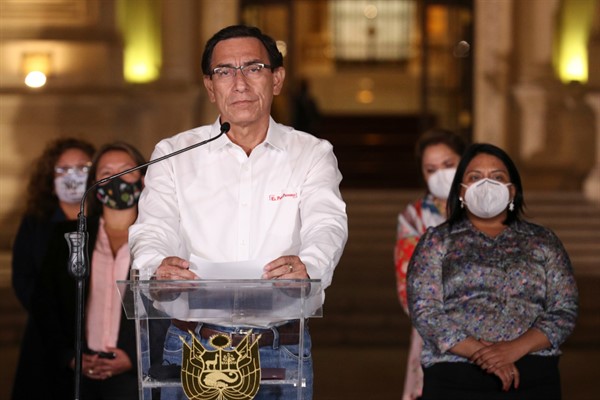Peruvian legislators stunned the country Monday night when they unexpectedly voted to remove President Martin Vizcarra from office, using a questionable interpretation of the constitution. The move not only underscores Peru’s chronic political instability, it also exemplifies the ferocious pushback faced by political figures who try to untie the knots of corruption that keep many countries, not only in Latin America, from dealing effectively with their problems.
Vizcarra lost power because he sought to craft fundamental reforms to Peru’s political and judicial system, which posed a threat to the establishment. Legislators in the unicameral Congress voted overwhelming to declare Vizcarra “morally incapacitated,” based on accusations of corruption. Instead of investigating the accusations, Congress summarily ousted the president, who was scheduled to leave office at the end of his term following elections in April. Vizcarra has steadfastly rejected all accusations of wrongdoing and said he was absolutely open to collaborating with an investigation after the end of this term.
Many Peruvians reacted furiously to his removal, immediately taking to the streets, banging pots and pans, and facing off with police who used tear gas against the protesters. But Vizcarra decided not to fight any more. “I declare that without agreeing with the decision, I will leave the presidential palace and go home,” he announced hours after the vote in Congress. “History and the Peruvian people,” he added, “will judge the decisions that each one of us makes.”

